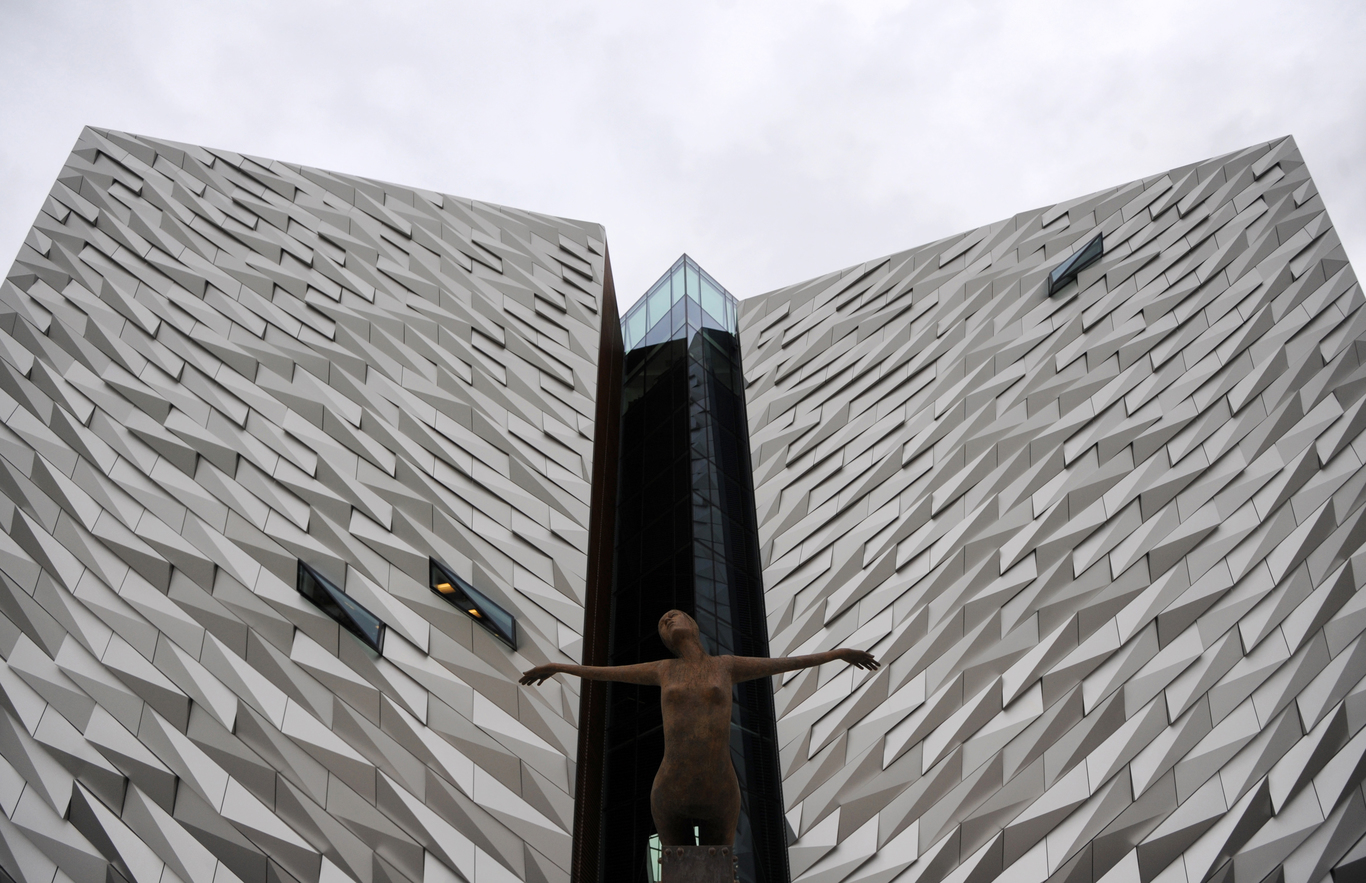The developer behind Titanic Belfast is fighting an 'improper' move to wind the company up
Pat Doherty’s Harcourt Developments says the bid stems from a UK property dispute.
HARCOURT DEVELOPMENTS, ONE of Ireland’s largest construction firms, has asked the High Court for an order preventing a UK company from seeking to have it wound up over a disputed debt of £2 million (€2.28 million).
Harcourt, which says it is not insolvent and employs more than 800 people, has brought proceedings against Surry-based Crest Nicholson (South West) Limited, which it alleges is “improperly” threatening to have the Dublin-based firm wound up.
It claims Crest Nicholson has “an ulterior motive” in seeking to have it put into liquidation.
Harcourt claims the petition is an attempt to force it to sell to Crest lands in England, which the parties had previously agreed to develop, at significantly below their value.
Harcourt Developments, owned by Pat Doherty and his family, is behind the Titanic Quarter project in Belfast, as well as several major commercial and residential schemes.
It is currently shortlisted to develop parts of the Guinness brewery site into a new urban district.
Bristol site dispute
At the High Court, Harcourt’s counsel, Martin Hayden, said the dispute has arisen between the two following a dispute over a Joint Landowners Agreement (JLA) in respect of plans to develop a site near Bristol.
Counsel said Harcourt entered into a JLA in 2006 with two entities, Muben Investments, which held a leasehold interest on part of the Bristol lands, and Crest Nicholson, which owned lands adjoining Muben’s property.
Under a framework agreement, the parties were to work together to develop the site into housing. The relationship between Crest and the other parties broke down in 2015, and Crest sought to terminate the JLA. The dispute went before an expert for determination.
Counsel said Harcourt believed it had resolved matters with Crest to recommence the development in 2017, when the parties entered into a settlement agreement.
Part of the agreement involved payments being made to Crest for costs it had incurred on the development. Harcourt, counsel said, it has made payments totalling £1.8 million to Crest.
Counsel said that Crest failed to provide Harcourt with vital information it requires to progress the development. Crest had claimed that it would only provide the information after it was paid money allegedly owed to it by Harcourt.
Last month, counsel said, Crest made a demand on Harcourt for a payment of £2 million. This, counsel said, was an attempt by Crest to engage in a form of disputed debt collection, which it is not entitled to do.
Misled
Counsel said it was “intentionally misled” by Crest, and the threat of bringing a winding-up petition is an attempt to force the Irish company to sell its interest in the development to Crest.
Counsel also told the court that any dispute over the settlement agreement arising out of the JLA must be determined by the courts of England and Wales.
Counsel said that the unwarranted liquidation of a solvent company would have a detrimental effect on Harcourt, which has over 800 employees.
As a result, Harcourt seeks an injunction restraining Crest from bringing or advertising any petition to wind up the Irish firm.
It also seeks declarations that any dispute arising from the settlement agreement should be heard before an English and Welsh court.
Ms Justice Carmel Stewart granted Harcourt Developments short notice to serve its injunction proceedings on Crest. The application was made on an ex-parte basis, meaning only one side was represented.
Additional reporting Peter Bodkin





